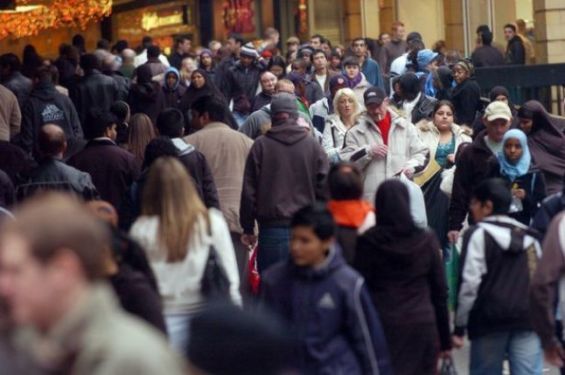Islamophobic street attacks are on the rise in the UK. Tell Mama, a national project which records and measures anti-Muslim incidents in the United Kingdom, has recorded a 30 per cent rise in street incidents and a 16 per cent rise in 2017, reports The Independent.
The group raises worries about a «marked shift» in these hatred acts, which are increasingly violent, and characterized by physical attacks, vandalism and abuse, as hate speech continues to invade social media.
However, social media is not the only platform for these hate campaigns. Last March, British police found out that a series of anonymous letters are being sent to British citizens in London, the Midlands (center) and Yorkshire (north), urging them to participate in a day called «Punish a Muslim Day» scheduled for April 3th. Tell Mama had also reported the incident on its Twitter account.
Political rhetoric
Hate crimes, in this case Islamophobia, have been continually rising over the past six years, indicates Fiyaz Mughal, the founder of Tell Mama, who fears that this trend will continue. «It is partly due to terrorism, to groups who just want to divide communities, and social media, especially as some politicians constantly seek to blame migrants,» he told the British newspaper. «Anti-Muslim rhetoric is bleeding into the political landscape, thus it emboldens people,» he added.
Fiyaz sees these acts as «frightening», referring to the protests supporting jailed English Defense League founder and far-right activist Tommy Robinson. Following violence outbreaks and the blockade of a bus driven by a Muslim woman, Sunday, July 15th in London, other particularly «scary» figures have emerged.
For Fiyaz, «Tell Mama recorded a 475 per cent rise in anti-Muslim street attacks in the wake of the 2016 EU referendum, but that was dwarfed by a 700 per cent increase in the week following the Manchester Arena attack and spikes were also seen after each Isis-inspired atrocity last year».
«Events that stimulate public discourse on immigration and Islam can sometimes correspond with a demonstrable ‘spike’ of Islamophobic crimes and incidents,» says Mughal. «It is important to note that these events are not the underlying cause of anti-Muslim incidents, but rather act as triggers. Where people with latent racial prejudices feel emboldened to take action, violently or otherwise,» he concluded.





 chargement...
chargement...












